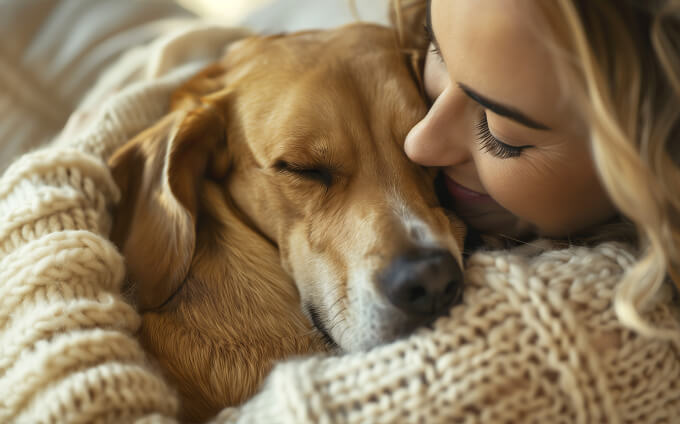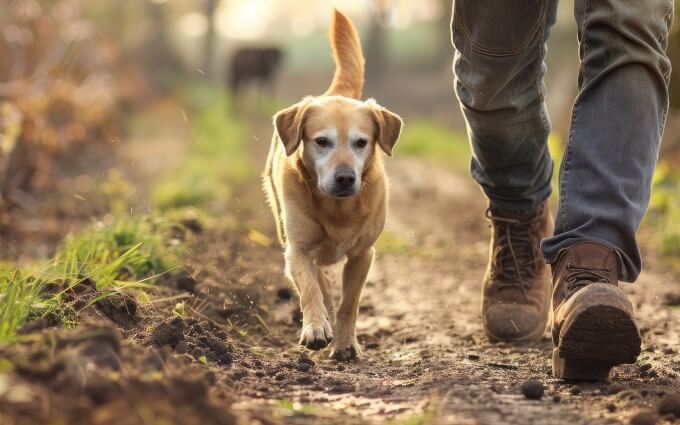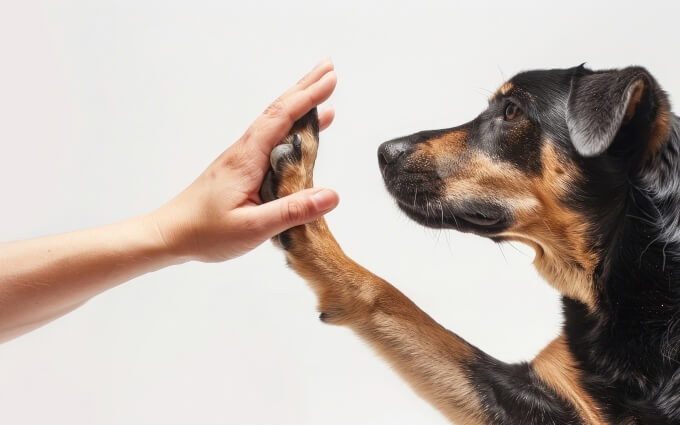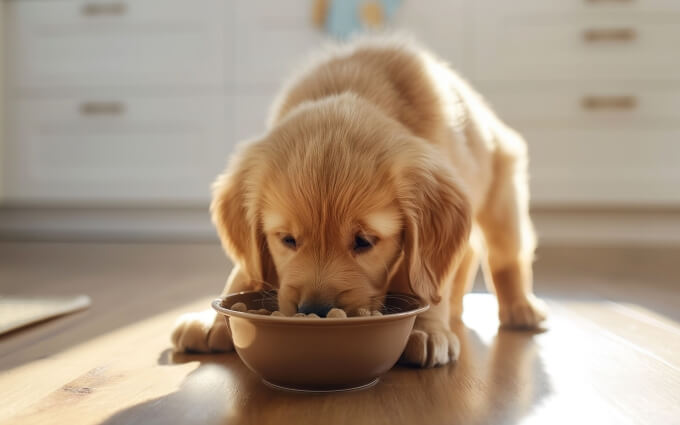- Home
- Dog health
- Essential Tips for Caring for Your Dog's Teeth and Gums
Essential Tips for Caring for Your Dog's Teeth and Gums
Maintaining your dog's dental health is crucial for their overall well-being. This guide covers various methods to care for your dog's teeth and gums, ensuring they stay healthy and happy.

- 36
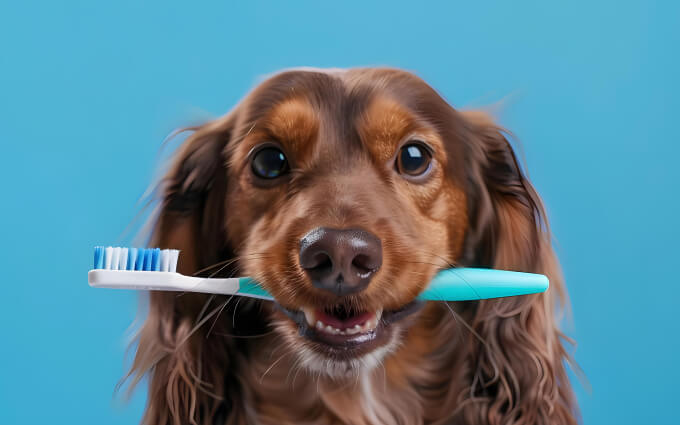
The Importance of Dental Health
Just like in humans, dental health is a vital aspect of your dog's overall well-being. Poor dental hygiene can lead to periodontal disease, which affects not just the mouth but can also impact the heart, kidneys, and other vital organs. Regular dental care helps prevent plaque and tartar buildup, ensuring your dog's teeth and gums stay healthy.
Brushing Your Dog's Teeth
Brushing your dog's teeth is the most effective way to maintain oral hygiene. Use a toothbrush designed for dogs, such as those with soft bristles or finger brushes. Ensure you use dog-specific toothpaste, as human toothpaste can be harmful to pets. Start by letting your dog taste the toothpaste to get used to it, then gently brush in circular motions, focusing on the gum line and outer surfaces of the teeth.
Steps to Brush Your Dog's Teeth
- Introduce the toothbrush gradually and let your dog sniff and lick the toothpaste.
- Gently lift your dog's lips and brush the front teeth in small, circular motions.
- Gradually move to the back teeth, maintaining a calm and gentle approach.
- Make the experience positive by rewarding your dog after brushing.
Using Dental Chews and Toys
Dental chews and toys can help reduce plaque and tartar buildup. These products are designed to encourage your dog to chew, which mechanically removes debris from their teeth. Look for chews that are durable and size-appropriate for your dog. Some chews also have added dental benefits, such as enzymes that help break down plaque.
Benefits of Dental Chews and Toys
- Provide mental stimulation and reduce boredom.
- Help clean teeth and massage gums.
- Can be used as part of your dog's regular playtime routine.
Diet and Dental Health
Diet plays a significant role in maintaining dental health. Some pet foods are specially formulated to promote oral health, with kibble designed to reduce plaque and tartar. These diets can be an excellent addition to your dog's dental care routine, especially if brushing daily is a challenge.
Choosing the Right Diet
- Select dental-specific dry food that helps clean teeth as your dog chews.
- Avoid sugary treats and table scraps that can contribute to dental problems.
- Consult your veterinarian to find the best diet for your dog's dental needs.
Regular Veterinary Check-Ups
Regular veterinary check-ups are essential for monitoring your dog's dental health. During these visits, the vet can identify early signs of dental disease and provide professional cleanings if necessary. It's recommended to have your dog's teeth checked at least once a year, and more frequently for senior dogs or those prone to dental issues.
What to Expect During a Dental Check-Up
- The vet will examine your dog's teeth and gums for signs of disease.
- Professional cleaning under anesthesia may be recommended for thorough plaque and tartar removal.
- The vet may suggest additional products or changes in diet to improve dental health.
Additional Tips for Dental Care
Besides brushing, chews, and diet, there are other ways to maintain your dog's dental health. Oral rinses and water additives can help reduce bacteria in your dog's mouth. Look for products approved by the Veterinary Oral Health Council (VOHC) for effectiveness. Consistency and a positive approach to dental care can significantly enhance your dog's oral health.
Other Dental Care Products
- Oral rinses and gels with antibacterial properties.
- Water additives that adjust the pH to reduce plaque buildup.
- Dental wipes for quick cleaning sessions when brushing isn't possible.
Frequently Asked Questions about Dog Dental Care
How can I take care of my dog's teeth at home?
You can brush your dog's teeth regularly with dog-safe toothpaste and provide dental chews to reduce plaque.
How often should I brush my dog's teeth?
Daily brushing is ideal, but even a few times a week can help maintain healthy teeth and gums.
What happens if I don't clean my dog's teeth?
Poor dental care can lead to plaque buildup, gum disease, tooth loss, and even infections affecting overall health.
Are dental chews and toys enough to clean my dog's teeth?
They help but do not replace brushing; they should be used as a supplement to regular dental care.
When should my dog see a vet for dental care?
Schedule yearly checkups, and see a vet sooner if your dog has bad breath, swollen gums, or trouble eating.
- 36
 Cassandra Dalgaard
Cassandra Dalgaard
Cassandra is an energetic dog owner who loves spending time outdoors with her 4-year-old German Shepherd, Max. They can often be found hiking in the woods, where Cassandra enjoys nature and Max explores his surroundings with great curiosity. Cassandra trains Max in tracking, an activity they both find very rewarding. In the evenings they relax at home, where Cassandra often reads a book while Max lies at her feet. Cassandra also volunteers at a local dog club where she helps organize training sessions and social events for dogs and their owners. For Cassandra, Max is more than just a dog - he's her best friend and faithful companion.
-
Food & Nutrition
 The Best Foods to Boost Your Dog's Immune System
The Best Foods to Boost Your Dog's Immune SystemTo keep your dog healthy and resilient, fueling their immune system with the right foods is key. In this post, we'll cover the top nutrient-packed foods that can give your dog's immune system the support it needs, helping them fend off illness and stay energetic.
 Marcin SolgaardOct 04, 20249
Marcin SolgaardOct 04, 20249 -
Dog Behavior
 Does My Dog Know I Care About It?
Does My Dog Know I Care About It?Discover the ways your dog shows it knows you care and how you can reinforce that loving bond through simple actions and daily interactions.
 Cassandra DalgaardAug 05, 202444
Cassandra DalgaardAug 05, 202444 -
Tips & Tricks
 How to Train Your Dog to Walk Off-Leash
How to Train Your Dog to Walk Off-LeashThis guide will walk you through everything you need to know, from essential commands to mastering off-leash walks even in distracting environments
 Marcin SolgaardJul 02, 202451
Marcin SolgaardJul 02, 202451 -
Tips & Tricks
 How to Train Your Dog to Give Paw
How to Train Your Dog to Give PawTeaching your dog to give paw is a fun and rewarding experience that strengthens your bond. This guide walks you through the process with tips, tricks, and plenty of paw-sitive reinforcement.
 Marcin SolgaardApr 11, 202441
Marcin SolgaardApr 11, 202441 -
Dog health
 Which Emotions Do Dogs Actually Experience? Understanding Your Dog's Emotions
Which Emotions Do Dogs Actually Experience? Understanding Your Dog's EmotionsDogs experience a variety of basic emotions similar to those of a young child. Learn about the emotions your dog truly feels, how they express them, and what it means for your relationship.
 Cassandra DalgaardJul 30, 202478
Cassandra DalgaardJul 30, 202478 -
Food & Nutrition
 How to Choose the Right Diet for Your Allergic Dog
How to Choose the Right Diet for Your Allergic DogFind out how to select the perfect diet for your dog with allergies. Learn about elimination diets, hypoallergenic foods, and the best ingredients to keep your furry friend healthy and happy.
 Marcin SolgaardJun 09, 202427
Marcin SolgaardJun 09, 202427 -
Puppies & Young dogs
 How to Puppy-Proof Your Home: A Complete Guide
How to Puppy-Proof Your Home: A Complete GuideBringing a new puppy home is thrilling, but keeping them safe means some serious puppy-proofing. This guide covers everything from securing hazardous items to creating a puppy-friendly zone, making your home a safe haven for your curious new companion.
 Michelle TorringOct 10, 202412
Michelle TorringOct 10, 202412 -
Tips & Tricks
 How to Teach Your Dog to Come When Called
How to Teach Your Dog to Come When CalledThis guide walks you through the process, from selecting the right command to dealing with distractions, ensuring a strong recall every time.
 Marcin SolgaardJul 10, 202448
Marcin SolgaardJul 10, 202448 -
Tips & Tricks
 How to Keep Your Dog Off the Furniture
How to Keep Your Dog Off the FurnitureEnsuring your dog stays off the furniture can be a challenge, but with the right techniques and consistency, you can create a pet-friendly environment that respects your space.
 Marcin SolgaardJun 24, 202439
Marcin SolgaardJun 24, 202439 -
Dog Behavior
 How to Help a Shy or Nervous Dog Build Confidence
How to Help a Shy or Nervous Dog Build ConfidenceHelping a shy or nervous dog build confidence takes time, patience, and the right techniques. With a structured approach, you can gradually encourage your dog to feel safe, secure, and ready to take on new challenges.
 Michelle TorringSep 22, 202415
Michelle TorringSep 22, 202415


